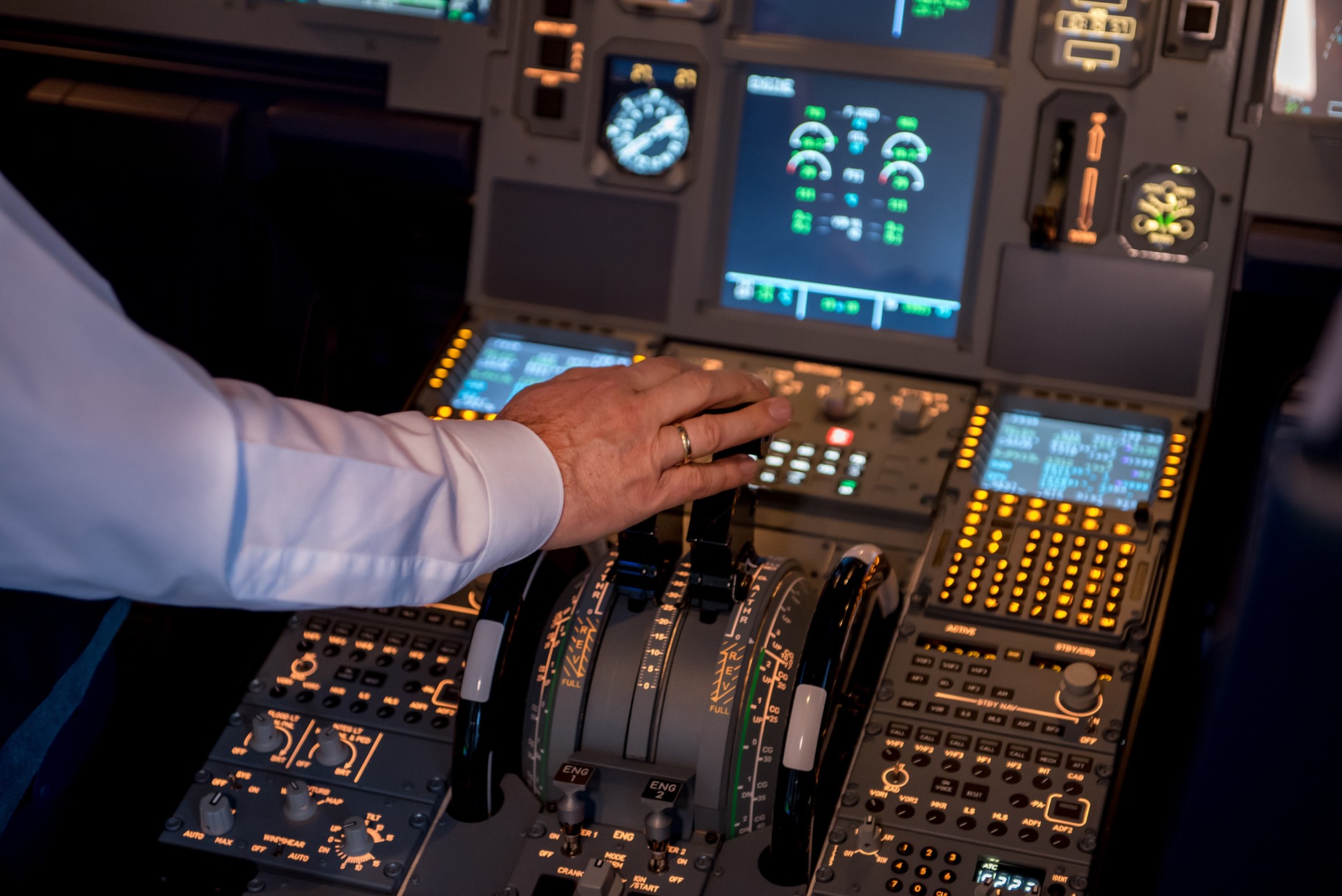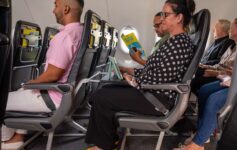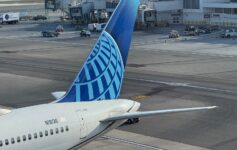
This is the first in a three-part series that talks about flying airliners and some of the challenges this pilot sees for the profession. In Part 1 we’ll discuss ups and downs of being a commercial pilot. In part two I’m going to talk about some of the challenges I see facing the profession around the world. Finally, in part three I’ll talk about what I think we need to do to address these challenges.
Part I: The Ups And Downs Of Being A Commercial Pilot: A Wonderful Job, But Lousy Career
There is truly no job in the world like being a commercial airline pilot. For those of us who sit in the left seat at a major airline it’s often the culmination of years of hard work and more than a few boyhood dreams. I truly love my job and if I won a billion dollars in a lottery tomorrow I might fly less but I would not quit my job. And yet as wonderful a job as this is it’s also a lousy career. Let me explain.
The Responsibility
It might help to talk first about how awesome my job is. When I come to work, I’m in command of an Airbus 320/321 and the crew. It’s an awesome responsibility and one I take very seriously. Flying presents a series of challenges that are constantly changing even on days that are routine. And I never for one moment forget that I’ve been given a sacred trust to ensure that my customers reach their destination safely. Those are kids, moms, dads, grandparents, friends and mentors back there and the worst possible outcome would be to lose one of my passengers on my watch. Knowing that gives what I do a real sense of purpose. I feel like what I do matters and it helps motivate me to do it well.
Then there is the overgrown kid side of the equation. We fly some very cool airplanes and getting to do that is just an enormous hoot. So, you want me to take 200,000 pounds of aluminum, fuel, people, and cargo with two big jet motors strapped to it pushing out 50,000 pounds of thrust and hurl it down a runway at over 160 mph and into the air? Sign me up please!
I just love flying. I love the feeling of taking the runway and pushing the thrust levers forward. Hearing the urgent growl as the two big turbofans come up to power and the shove back in my seat as the takeoff roll begins. I love the feeling of easing the stick back and feeling the big bird break ground. I love feeling how the airplane comes alive in my hands as we get the gear and flaps cleaned up and she enters her element. And what pilot doesn’t love it when they truly grease on a landing the big bird alighting back on the concrete with barely a whimper.
The Challenges
I love the challenges that my job presents. Navigating weather and the need to always be mentally ahead of the airplane. I derive pleasure from having faced a complex and difficult situation and managing that situation to a successful conclusion. I love airports that demand I bring my A game every time I operate from them. Burbank is a great example with its short runways and terrain all around it. Landing there presents very little margin for error and you can never let your guard down. At a major hub airport like New York (JFK) I may gently milk the airplane onto the ground going for that ultra-smooth touch down. Burbank (BUR) is more like a carrier landing. You don’t milk the airplane into Burbank you get it down safely and quickly.
The moment the gear hits the ground your pulling the engines into full reverse and your feet are poised on the brakes in case the automatic system (which will be set on the higher of the two settings) doesn’t immediately engage. The fence at the end of the runway always seems to come up fast even when you’ve done everything right which keeps you on your toes. Takeoffs are similarly special. We take the runway and when cleared for takeoff hold the brakes as we spool the engines up. So now the airplane is sitting there the engines spooled but not yet roaring out their full song and you swiftly release the brakes and shove the thrust levers to the stops. The reaction is always swift the muted roar being swiftly replaced with a full-throated bellow as the engines go to maximum thrust and begin pushing the airplane down the runway.
You know if anything goes wrong your margins are tighter than normal so your laser focused on doing your job. In an airliner if something goes wrong the general rule is to sit on your hands first. But during the takeoff roll between 80 knots and V1 (V1 is the go/no go speed beyond which we will go flying even if an engine explodes) you have essentially zero time if things go wrong to analyze it and react to it. It’s the riskiest part of every flight and it never fails to elevate my pulse a few points. At a place like Burbank that need to be laser-focused is even more acute which frankly is part of the fun of it. Then there are places like Washington National (DCA) with the River visual approach. Or St. Maarten (SXM) with its landing over the beach and takeoff aimed directly at a mountain. Santo Domingo (SDQ) has a complex instrument landing system that really demands that you be ahead of the airplane and properly manage your energy state.
Remember those cool airplanes I mentioned? They are highly complicated machines with multiple interconnected systems. AC and DC electrical busses with multiple power sources. Three independent hydraulic systems with multiple pumps and backups. The list goes on and on and you simply must be a master of all of it. We don’t memorize numbers today the way they did in my grandfather’s era but you do need to have a solid high-level understanding of how it all works. You need to be aware of likely failure modes and have an understanding of how you need to react.
Even more importantly you must understand what your autopilot is doing and why at all times. There are multiple traps for the unwary and you need to be alert for them lest you find the airplane not doing what you wanted it to do. And in this era of automation, it remains utterly critical that you be able to fly the airplane. The need for airmanship hasn’t been reduced by automation it’s been made even more critical. But frankly meeting these challenges are all things I enjoy.
The Pay And Benefits
Let’s be honest, the pay and benefits once you get to a major especially are pretty good. And even as a mid-seniority pilot it’s easy to bid in a way that you can create mini vacations if you want to. When I was younger and single that and the ability to non-rev created a lot of great chances to travel and see the world. It’s harder now with kids and school but the opportunities are still there.
I also can’t talk about things I love without mentioning the view out my window. Pilots I think are gifted a unique view of the world. As a Christian I’m especially grateful that I get to experience the majesty of God’s creation in ways most people don’t. I don’t like getting up at 3:00 am to operate an early flight but I do enjoy seeing the sunrise from 35,000 feet. Sunsets from altitude are also spectacular especially when you throw some clouds into the mix to really help capture those golden moments. My office has a view that simply can’t be beat.
So, what’s not to love? This sure as heck sounds like a pretty good job right? Why do I call it a lousy career?
The Pilot Shortage
Unfortunately, you need look no further than last couple of years for exhibit one. Two years ago, we were in the middle of a historic pilot shortage. Airlines were struggling to figure out where they would find the pilots to fill their cockpits with all the looming retirements. Even badly managed airlines were profitable and Boeing and Airbus were struggling to produce planes fast enough to meet demand. There was zero reason for a pilot at a major airline to think that there was any possibility of being furloughed. Then COVID-19 hit and suddenly airlines world wide were shrinking and parking large portions of their fleets. Delta to cite one example told its junior most 2,500 pilots (That’s going back to a Dec 2016 hire) at one point that they would be furloughed. Now the pilot shortage is back again and worse than ever.
Being a pilot is a highly specific and specialized skill set and while many of those skills can translate well into other professions it’s not easy to find you suddenly need to completely change your career path. And that’s what a furloughed pilot is generally going to have to do since in almost every case when airlines furlough the number of open pilot jobs is virtually zero. For most of them any job they find is going to pay a lot less than what they have been earning as well.
The Seniority System
The profession operates on a seniority system and while there are good things about it there are negatives as well. When every aspect of your job (pay, schedule, quality of life) is dictated by your position on a seniority list it means that once you’ve been at an airline (especially a major) for more than a couple of years you’re essentially trapped. Because this isn’t like going from a management position at GE to one at Ford where you might negotiate for more money or at least be able to take your skills and experience and use them to stay even. A 777 Captain at United with 40,000 hours who wants to work for Delta is going to find himself all the way at the bottom on reserve as a 737 First Officer.
The Time Away From Home
There are a lot of hours away from home as an airline pilot. I know that’s true of some other professions as well but it’s still a negative part of the job. Most of us live in one city and are based in another so we have to commute to work on the airlines. When you live in DC and are commuting to Chicago or New York that’s one thing. When you live in Wichita and are having to connect through a hub to get to your base it’s another. Yes, the decision to commute is a personal one and many pilots choose to live in base to avoid it. But many of us find that with all the different airlines you end up working for on your way up the ladder that you just can’t keep uprooting your family.
So, you start commuting and deal with the fact that four days of work means flying into base the day before and then coming home the day after that trip finishes. That commute can easily blow up when your flight gets delayed and there is little worse than pulling into the gate only to watch your last flight home pushing back. I know plenty of guys who look at having one or two days off between trips and feel like it’s just not worth it to go home. Those days off can get pretty busy too trying to catch up on everything that needs to be done and was on hold when you were gone.
Plus like with military families I can guarantee you that the moment you leave home your kid is going to get sick, or the car breakdown, or water heater start leaking and your wife is going to get stuck dealing with it solo. With your kids there are missed birthdays, plays, sporting events etc. When your quarterback son gets called off the bench and rallies his high school football team to victory in his first varsity game and you miss it because you’re at 37,000 feet over the Atlantic there is no getting that moment back. Again, I know some of these things are true of other professions as well.
The Union
Another negative is the fact that you’re dealing with union representation and the Railway Labor Act (RLA). Now while there certainly are benefits to union representation it’s not all peaches and cream. Remember the seniority system has you trapped so if you want to earn the same income as a pilot at another airline you have to negotiate it. Those negotiations can drag on for years and when the fight between the company and the union gets ugly, it’s zero fun for anyone.
The RLA practically guarantees that a company that isn’t in a hurry to come to an agreement can drag the process on for 3-4 years at a minimum. The company holds most of the cards too with the ability to essentially violate the contract at will if they want to. Your recourse is a grievance process that seems designed to solve nothing and where you can ultimately end up in front of an arbitrator who makes up his own rules and applies his own sense of what he thinks is fair regardless of what your contract says.
The Stress
Finally, the job can take a toll on you. Depending on your seniority and your airline you can end up flying a lot of back-of-the-clock trips which are always hard to deal with. Duty days can run 14-16 hours and that doesn’t count the time you spend between waking up and reporting to the gate and getting to the hotel after you land. The situation is better than what it once was with rules that require a minimum of 10 hours off and a theoretical 8 hours of sleep opportunity but even those numbers can leave you worn out.
When you’ve had a 16-hour day especially if there have been challenges it’s impossible to walk into your hotel room and go straight to sleep. The mental effort involved simply demands some time to decompress before you go to bed. Walking into your hotel room at 3am, all but guarantees that you’re not going to sleep well. The shuttle to the airport always seems scheduled to leave five minutes before the hotel’s breakfast starts and it can be difficult to impossible to eat meals at normal times. We are forced into eating a lot of airport food which isn’t always the healthiest of choices.
Not every layover is an all-inclusive beach resort either. We do get to stay in some nice places, but we also can easily end up in hotels that have issues. Pilots at the regionals are especially prone to getting stuck in a run-down airport Days Inn or similar hotel with little to no food options within walking distance. Getting home at midnight when you know your kids are going to be bounding into your room at 6 am doesn’t exactly set you up to be well rested your first day home.
CONCLUSION: A Lousy Career, But A Great Job
It’s for those reasons I describe being a pilot as a lousy career. But to me the other aspects more than make up for it and I couldn’t imagine doing anything else.
Next: a look at some challenges that are facing the piloting profession.




It sounds like you’re rather unhappy with the union. Do you think that you’d be better off without a union?
No I don’t think I’d be better off without a union. That being said the current situation both with ALPA and the fact that the RLA massively tilts the playing field in favor of the company is far from ideal.
I don’t know but given how unions push, the rules are probably pretty balanced.
I think the pilots overall would be better off if they weren’t tied so closely to a company-specific seniority system. What if there were a U.S. industry-wide seniority system instead – making it a profession or craft – instead of company by company. Then you could gain experience and seniority, but you would not be constrained by company specific base closings and financial failings.
A friend of mine is a retired UA 767 captain. He was once asked what it was like to line that thing up on the runway, open the throttles, and feel it come to life. He said you have a 50/50 chance. Either the thing takes off or it doesn’t.
Well…. I guess it’s a good thing he became a pilot, probabilities obviously weren’t his thing…
Interesting news from British Airways. British Airways male pilots and crew allowed to wear makeup and piercings. All employees in uniform can wear mascara, false eyelashes and earrings. https://www.independent.co.uk/travel/news-and-advice/british-airways-male-crew-makeup-and-piercings-b2222981.html
Loved reading this post. Thank you for the behind the scenes look. It makes me more grateful for the hard working, sacrificing men and women who are making sure I can safely and efficiently do my job, too.
Thank you very kind.
Very interesting post! Thanks for sharing!
Thank You!
Interesting read, but I was turned off by “As a Christian I’m especially grateful that I get to experience the majesty of God’s creation in ways most people don’t.”
Leave religion at home.
That put me off too. I hope he relies on his instruments rather than what Jesus says during any emergencies. As well as the “your wife gets stuck with a broken water heater or car”, as if a woman isn’t capable of dealing with those things by herself. Also the assumption that one’s spouse would always be a woman.
@121Pilot – You’re living my dream (even though it’s not always dreamy) and that’s probably instructive for the rest of us. While it’s not lost on you that this is a tremendous opportunity, it’s also important for all of us to remember that we are probably living someone’s dream and not to take it for granted.
Just a reminder everyone if you have questions about flying or what goes on behind the scenes at an airline email me at ask121pilot@yahoo.com and I will do my best to answer your questions in my Ask Your Captain column.
I am reading this and in the end it is a treatise on basically any life spent doing something worthy and with passion involved. So is it really that different than what anyone else is experiencing working on the road and doing what they love? I spend 275 days a year moving around the world. It’s both grueling but fantastic at the same time. I could argue that pilots get special benefits that I can only hope for. On the same plane of existence they could point at me and say, wow, look what he gets. The reality is that if you do what you love the grueling parts are irrelevant. Just keep doing it and love every day you can. Blah Blah the things you miss at home and the early mornings and things you missed with your kids. If it really meant THAT much you would stop doing it. Bottom line is, as Herb Kelleher once said at a meeting with pilots to negotiate a new contract, “Let’s start by my saying that I know you guys would do this for nothing if you had to.”
Great article and an excellent read. I’m currently a college student right now and planning to transfer major into Aviation. I was just wondering if you got any tips/advice for me. My university is offering an aviation program that I want to take, but I’m also considering to do military in the Air Force branch to also get experiences. What do you think is the better options.
Ty I think that’s a great question and possibly of interest to more people than just yourself. So I’m going to answer it in my Ask Your Captain Column in the very near future.
I chose not to be a pilot. But I love aviation and airplanes and flying! I think we need more automation and ‘artificial intelligence and self-flying machines. But that won’t happen for a hundred years.
Tony,
Todays modern airliners are very highly automated machines. And that’s proven to be both a blessing and a curse.
But in terms of things like AI and full automation there are significant hurdles that would have to be overcome. A good look at some of those can be found here.
https://liveandletsfly.com/airline-automation/